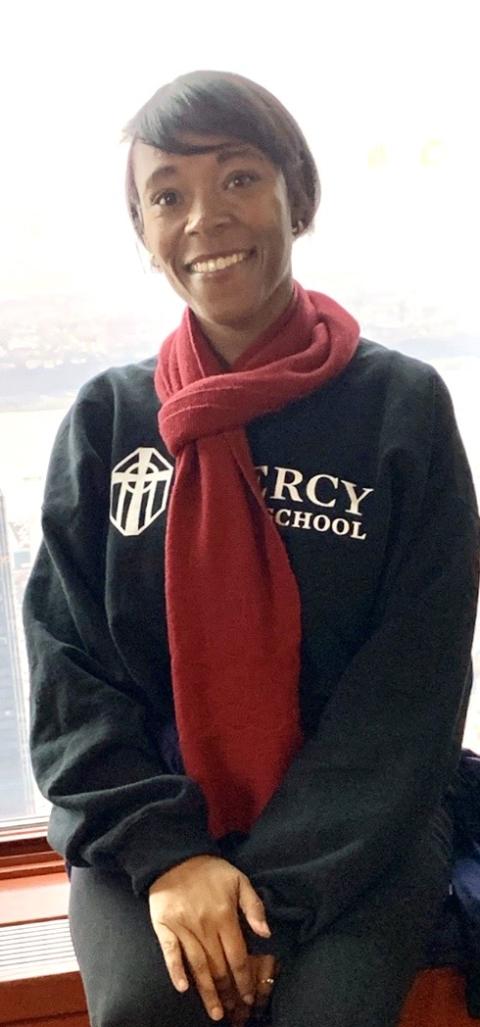
What do karate movies and mental health have in common? In two words: Lisa Brown. If you have an opportunity to meet Lisa, you’ll understand that these two things live comfortably together because her energetic character encompasses a wide outlook, much like her 23-year nursing career.
Lisa started her working life with the idea of becoming a nurse anesthetist, but she soon realized that a more interactive role would be a better fit. After earning a master’s degree in nursing from Towson State University in 2011, she completed the post master’s Family Nurse Practitioner (FNP) certification program at Bowie State University. Subsequently, Brown enrolled in the Doctor of Nursing Practice (DNP) program at Wilmington University, graduating in 2018.
Working in critical care for several years, Lisa loved the straightforward immediacy of urgent nursing care because “I am an action person!” Her patients stayed for short periods of time before moving to another hospital unit, so Brown’s focus was on their immediate physical well-being.
Mother of two, Lisa accepted a position with a mental health center in Baltimore to manage prescriptive medications for the staff psychiatrists. Lisa admits that, while she initially believed mental health issues were not a reflection of true illness, she began to tune into the psychological needs of long-term patients after witnessing the positive impact of compassion on patient outcomes. This shift from medical health care to mental health care was a turning point in Lisa’s thinking and, ultimately, her career.
Expanding on her prior educational focus, Brown enrolled with UNH Online to earn a Psychiatric Mental Health Nurse Practitioner Certificate (PMHNP), which she completed in December 2019.
“The online program is geared to working professionals”, states Lisa, noting the schedule flexibility, the curriculum designed for success in the job market, and accessible faculty providing critical support for their students. She established lasting relationships with her cohort of peers, trading ideas and offering feedback.
“I love UNH. I tell everyone I know that this is the best program.”
Brown suggests treatments that suit individual preferences, including verbal, art, music, behavioral, cognitive, and pharmacological therapies. Acknowledging that some patients are ambivalent about taking prescriptive psychological medicine, Lisa offers educated and appropriate advice about their use as another option in the toolbox of techniques used in mental health.
To illustrate the guided exploration of a painful past, she equates the process to that of peeling an onion. As the layers are peeled back, tears represent internal release as a person relives past emotions in order to move toward healing.
Lisa’s eyes fill up when she describes a patient experiencing a visible flashback to her deeply painful childhood. This powerful emotional memory reverberated within Brown as she realized how it echoed through all aspects of that person’s life. But allowing these intense feelings to be expressed opens the door to recovery and to reclaiming life at a healthier level.
A measure of Lisa’s commitment and strength, she goes home after work feeling energized, and returns to work every Monday with a smile. Her daughters are accustomed to their mother reading psychological pharmacology books and listening to medical podcasts in the car, “just for fun”. She schedules family trips every year to places like Bali, Dubai, and Paris, and her children log their international experiences in a journal.
How do karate movies factor in? Lisa loves them. Watching action-packed movies is a release valve for her action-oriented personality and a foil to the emotion-centered requirements of her job.
“I have more fun at work than anywhere else!” declares Brown. A blend of passion, commitment and pragmatism are palpable when she talks about her vocation.
To quote the metaphor Lisa frequently uses with patients, “You have to look under the hood to see what’s happening with the engine.”